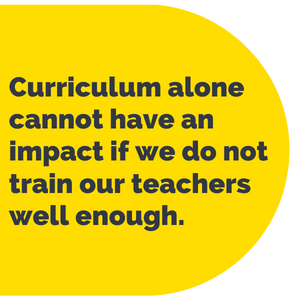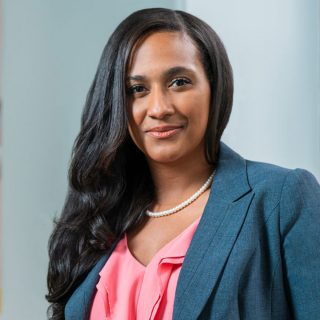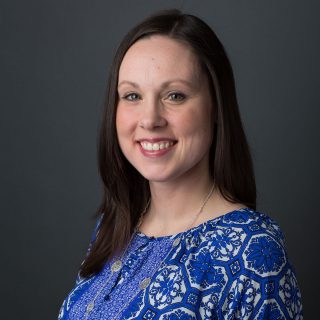54% of American adults between the ages of 16-74 read below a 6th grade level. That number is staggering. That number means 130 million adults in our country face lost earning potential and are not equipped with the literacy skills needed to effectively self-advocate for themselves or to engage as citizens of a democracy.
While those jarring statistics speak to the crisis that we are faced with at a national level, we also know the more personal stories. As educators, we have seen the reading challenges that were exacerbated by the pandemic and as mothers, we know firsthand what it feels like to have your child come home and struggle to read. For Juliana, her son Gabe was diagnosed with dyslexia at an early age. Learning how to read was a daily battle, as Gabe lost his motivation due to his struggles and the lack of decoding skills he needed to be successful. And for Erin, she saw her son trying to memorize as many words as possible as a coping mechanism. He was unable to decode as phonics instruction was not yet a component of his school’s curriculum.
How, might you ask, did our country get to this point?
“Sold a Story”
In October of last year, journalists Emily Hanford and Christopher Peak attempted to answer that exact question through the six-episode podcast “Sold a Story”. Their journey into the history of reading instruction within the United States and beyond investigated the fundamental problem of how students in our country are taught how to read, largely as a result of teachers being sold an idea that was wrong. That idea was that students could learn how to read through exposure and looking at whole words. Hanford and Peak argue that while they don’t think there was ill-intention, they do think that people believed so deeply in this approach that they ignored or explained away the scientific evidence that showed students actually need direct phonics instruction.
A Renewed Call to Action and Teacher Training
It is impossible to listen to “Sold a Story” without feeling a renewed call to action. We feel this urgency acutely at Uncommon Schools. While we believe our literacy program largely aligns to the science of reading, the curriculum alone cannot have an impact if we do not train our teachers well enough.

 This year, Uncommon Schools was faced with a teacher attrition rate ranging from 29 to 59% across our five regions. We underestimated the compounding effect that student learning loss from the pandemic and significant numbers of new teachers would have on student achievement data across our 20 elementary schools. The hard truth is that through the first few months of the year, 60% of our 1st through 4th graders did not have the necessary growth in their reading to mastery of grade-level texts.
This year, Uncommon Schools was faced with a teacher attrition rate ranging from 29 to 59% across our five regions. We underestimated the compounding effect that student learning loss from the pandemic and significant numbers of new teachers would have on student achievement data across our 20 elementary schools. The hard truth is that through the first few months of the year, 60% of our 1st through 4th graders did not have the necessary growth in their reading to mastery of grade-level texts.
This is not a result of a lack of teacher effort. Our teachers are hard at work and committed to our students. Instead, we believe that we need to reimagine the way in which we train our teachers. If we can deeply develop their understanding of the science of reading and their ability to execute instructional practices grounded in the science of reading, then we can drastically move the needle on student achievement. To do this, we have doubled down on training teachers in their ability to analyze text complexity, diagnose student misunderstanding, and effectively instruct students to build the reading skills and comprehension that lead to reading achievement.
A Multi-Faceted Approach to the Science of Reading
As we have seen with the challenges we are facing this year, it is not enough to have a strong, evidence-based literacy curriculum. There must be a comprehensive approach, driven by scientific research. Below you will find the five components that we believe are essential if students are to achieve at high levels in reading:
1. Direct and Systematic Phonics Instruction: Students must receive phonics instruction that is directly taught, increases in complexity, and maximizes the number of at-bats for practicing with efficient transitions and effective pacing of lessons. Students must also have frequent opportunities to apply these skills by reading decodable texts and by engaging in writing that allows students to apply their phonics skills to the spelling of written words. Many of these phonics skills can be found in our “Phonics and Fluency Content Guide.” 
2. Research-Based Reading Assessment: While standards drive grade level reading instruction, a research-based reading assessment that is administered multiple times a year will gauge student mastery of those standards. A high- quality assessment must assess reading skills such as alphabet recognition and phonemic awareness along with print concepts, genres, fluency, and comprehension. Teachers can then analyze the data to determine where acceleration needs to occur as well as the type and complexity of text needed to practice those skills.
3. Small Group Instruction Driven by Dynamic Data: We have heard the critiques of small group instruction, especially guided reading. We agree that it is ineffective for students to be placed in a reading group and remain in that group for the entire school year. We also believe it is ineffective if students only receive reading instruction at their individual reading level or progress through a series of leveled texts not based on data. However, we believe that when small group reading instruction has dynamic grouping, content, and text selection based on data from a research-based reading assessment that it can have a powerful impact on student reading achievement.
4. Strong Teacher Professional Development: Teacher preparation is essential if teachers are going to fully understand the science of reading and the instructional techniques necessary to implement effective reading instruction. Development must be differentiated for new and experienced teachers, continue throughout the course of the school year, and be responsive to student data for it to be effective.
5. Strong Leadership: In order for these other four components to be done well, teachers and students need leaders with a strong science of reading mindset and the skill to model and develop teachers in solid instructional practices. Leaders must also be committed to removing those practices that are not supported by evidence no matter how embedded they are in the culture of the school.
What Comes Next?
We know there is much work ahead of us within our 45 K-8 schools so that we can radically change reading achievement. We have great hope! As educators, we see the change in practice that our leaders and teachers are working hard to implement after the latest round of professional development and data. As mothers, we have seen our sons thrive after they received instruction grounded in the science of reading. As we continue to learn and strengthen our five pillars of strong literacy instruction, we will continue to engage you in that process, share our learnings and look forward to learning from you.
 Save the Date! Upcoming Webinar with the Authors!
Save the Date! Upcoming Webinar with the Authors!
We are hosting a webinar on Thursday, February 16th where we will dive further into this topic. If you’re interested in attending, please register here.




